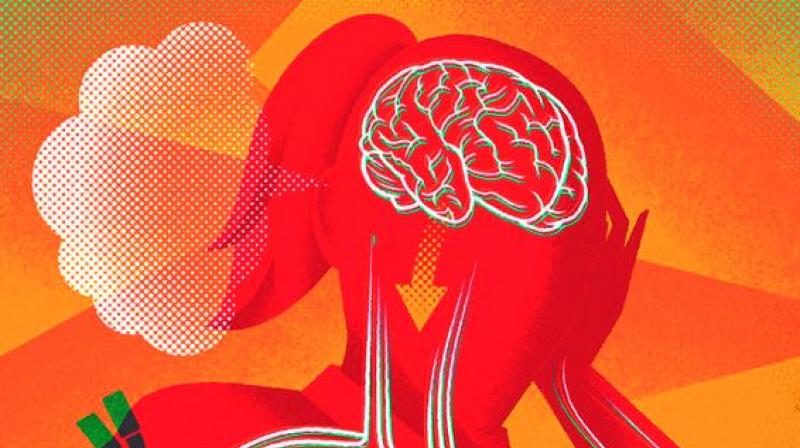Health & you: Psychotherapy to beat stress and gastrointestinal distress

Digestion problems are growing rampantly among working and non-working population — both in women and men. While looking at the probable causes of gastrointestinal disorders, a Harvard study found that almost 35 per cent to 70 per cent of people suffer from gastrointestinal problems. Among this section, women are found to be affected more often than men. The apparent physical cause for these disorders most often do not include the chances of an infection but still cause bloating, pain, irritable bowel movements and other discomfort. Changes in emotional state or moods may have an impact on your digestive system too.
A functional gastrointestinal (GI) disorder can be caused by a single factor or a multiplicity of them, including biological, physiological and social conditions. Numerous studies have suggested that stress may be particularly important among the array of probable causes. The relationship between environmental or psychological stress and gastrointestinal distress is complex and bidirectional: stress can trigger and worsen gastrointestinal pain and other symptoms, and vice versa. This is why psychological therapies are often used in combination with other treatments — or even on their own — to treat functional gastrointestinal disorders.
It is even seen in patients undergoing stress therapy or treatment for anxiety disorders to experience reduced GI tract disorder symptoms. Chronic upset stomach, irritable bowels, and other unpleasant symptoms of the digestive system are the gut’s natural reaction to stress. If the emotions at play are sending a distress signal across the body, many physiological functions may get affected, including gastro functions.
Irritable Bowel Syndrome (IBS) is common in patients having psychological disorders. IBS and psychological problems many times are co-morbid. Many patients present their psychological distress with somatic symptoms and gastrointestinal distress is one common symptom. Many a time, patients get all physical investigations done but find nothing because of negative reports. Further tests indicate that the patient has psychological disorder. Psychological stress is an important factor for the development of IBS.
It is crucial to identify the correct reason impacting your physical and mental health. Only then a proper diagnosis can be carried out to offer the best possible solutions. In truth, the impact of stress can reach farther than the stomach and affect a holistic lifestyle. Patients often feel that stress caused by gastrointestinal disorders is actually blaming them back for their own condition. The truth is they are trying to find the reason for common maladies and understanding how stress affects the bodily functions. Deep research and thorough study of the subject will open up newer avenues to prevent and treatment of many conditions for which the reasons are yet unknown.
Patients are advised to undergo psychological intervention from a clinical psychologist to reduce the pressure that the stress is causing in their bodily functions. In many cases even pharmacological treatment is needed from a psychiatrist. It is seen that therapy and medicine help reduce stress in individuals, and eventually reduce multiple other stress-related symptoms. It is important to have acceptable levels of stress in life to avoid clinical problems like IBS and many more. In this time of fast life, in order to sustain a lifestyle, earn steadily, travel, socialise and carry out all daily activities — people often ignore the importance of being healthy. Stress, above all, jeopardises the chances of living a healthy life. De-stressing from time to time with the help of meditation, workout, swimming, playing a sport is becoming increasingly important as we head into the future.
Research indicates psychological stresses have marked impact on intestinal sensitivity, motility, secretion and permeability. The treatment of IBS needs much more attention to manage stress and stress-induced responses.

